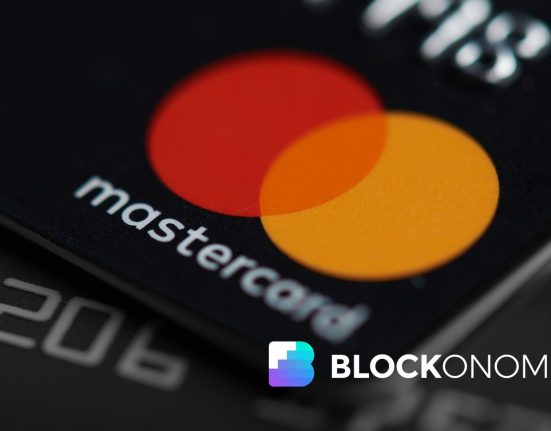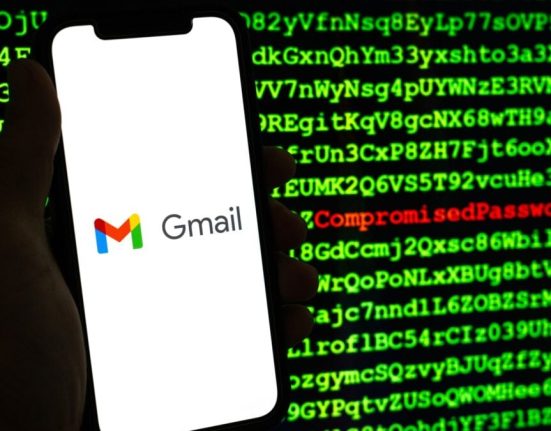UKRAINE – 2021/10/06: In this photo illustration a Google Play Store logo is seen on a smartphone. (Photo Illustration by Pavlo Gonchar/SOPA Images/LightRocket via Getty Images)
SOPA Images/LightRocket via Getty Images
Google Play Store has implemented a new policy requiring cryptocurrency wallet developers to obtain government licenses before publishing apps in 15 jurisdictions, including the United States, United Kingdom, and European Union. The policy applies to both cryptocurrency exchanges and software wallets, regardless of whether the provider holds customer funds.
The new requirements come as digital assets gain mainstream adoption. Bitcoin reached an all-time high of $123,000 in August 2025, and stablecoins are increasingly used for payments and remittances worldwide.
Wallets or Password Managers? How Cryptocurrency Wallets Function
Cryptocurrency wallets are software applications that manage cryptographic keys rather than storing actual digital assets. Each wallet contains a private key—a 256-bit number that serves as a digital signature. This private key mathematically generates a corresponding public key, which creates the wallet address where users can receive cryptocurrency.
When users want to send cryptocurrency, the wallet software uses the private key to digitally sign a transaction message. This signed transaction is broadcast to the blockchain network, where nodes verify the signature matches the public key associated with the sending address. The transaction then gets recorded permanently on the blockchain.
The wallet software functions similarly to a password manager, storing and managing the cryptographic keys that prove ownership of digital assets rather than holding the assets themselves.
Custodial Versus Non-Custodial Wallets
The cryptocurrency industry distinguishes between two types of wallets based on who controls the private keys.
Custodial wallets are operated by companies that hold users’ private keys on their servers. These providers manage transactions on behalf of customers, similar to how banks hold deposits. Companies like Coinbase and Binance are known for custodial wallet services, but they have significant investment in non-custodial technology too.
Non-custodial wallets store private keys locally on users’ devices. The wallet provider never has access to user funds and simply provides software that helps individuals manage their own cryptographic keys. Popular non-custodial wallets include MetaMask, Trust Wallet, and Exodus.
This distinction has important regulatory implications. Custodial wallet providers actually hold customer funds, making them functionally similar to traditional financial institutions. Non-custodial wallet providers never access or control user funds.
Google’s Licensing Requirements
Google’s policy treats both wallet types identically, requiring the same licensing regardless of whether the app provider ever holds customer funds.
In the United States, the policy requires developers to register with FinCEN as Money Services Businesses and obtain state money transmitter licenses. These requirements typically apply to companies that actually transmit money on behalf of customers.
For European Union countries, Google requires developers to obtain CASP (Crypto Asset Service Provider) authorization under the Markets in Crypto-Assets (MiCA) regulation. MiCA licenses are designed for exchanges, trading platforms, and custodial services that actually provide crypto asset services to customers.
In the United Kingdom, developers must register with the Financial Conduct Authority.
Regulatory Landscape Challenges Developers
The policy requirements exceed what current law mandates for non-custodial wallet providers in several jurisdictions. FinCEN’s 2019 guidance on Convertible Virtual Currencies explicitly distinguishes between hosted (custodial) and unhosted (non-custodial) wallets, stating that non-custodial wallet providers are not classified as money transmitters under current US regulations.
Similarly, MiCA licensing is intended for businesses that provide crypto asset services to third parties. Non-custodial wallet software that simply helps users manage their own keys may not qualify for CASP authorization because it doesn’t provide traditional crypto asset services.
As journalist L0la L33tz reported in The Rage, “Google’s policy thereby goes well beyond what is required of non-custodial wallets by law.”
The licensing requirements create substantial compliance costs for wallet developers. Obtaining money transmitter licenses across US states can cost hundreds of thousands of dollars and requires maintaining significant cash reserves. MiCA compliance involves extensive regulatory programs designed for traditional financial institutions.
These costs may prove prohibitive for smaller developers who have historically driven innovation in the cryptocurrency wallet space. Larger companies with substantial compliance budgets may be better positioned to meet the requirements.
Implication’s of Google’s Duopoly Status
Google’s Android operating system powers approximately 70% of smartphones globally, with the Play Store serving as the primary app distribution channel. While users can install apps from alternative sources through sideloading, this requires technical knowledge that limits mainstream accessibility.
The policy effectively gives Google significant influence over which cryptocurrency tools are accessible to mainstream Android users, regardless of what local laws actually require.
L0la L33tz’s analysis identified this as part of a broader trend toward “regulation by commercial enforcement,” where platform operators implement policies that exceed legal requirements. This represents a shift from traditional regulatory approaches that require legislative changes.
The policy appears influenced by the Financial Action Task Force’s 2021 guidance suggesting that decentralized applications might qualify as Virtual Asset Service Providers if developers maintain control over user interfaces. While this guidance is not legally binding, Google has implemented it as a mandatory requirement.
The policy implementation coincides with growing institutional adoption of digital assets and increasing use of stablecoins for international payments. Non-custodial wallets provide users with direct control over their digital assets without relying on third-party custodians.
The restrictions may influence how users access cryptocurrency tools, potentially directing them toward custodial services or browser-based interfaces that introduce different risk profiles.
Regulatory Tailwinds Are Not Always Guaranteed
Google’s approach demonstrates how platform gatekeepers can implement restrictions that function as de facto regulations without requiring legislative changes. This creates a regulatory model where private companies’ risk management decisions become binding requirements for entire technology ecosystems.
The policy establishes precedent for platform-level restrictions on decentralized technologies, potentially affecting other privacy-focused or cryptocurrency-related applications in the future.
The ultimate impact will depend on how developers, users, and regulators respond to this intersection of platform control and financial technology regulation.








